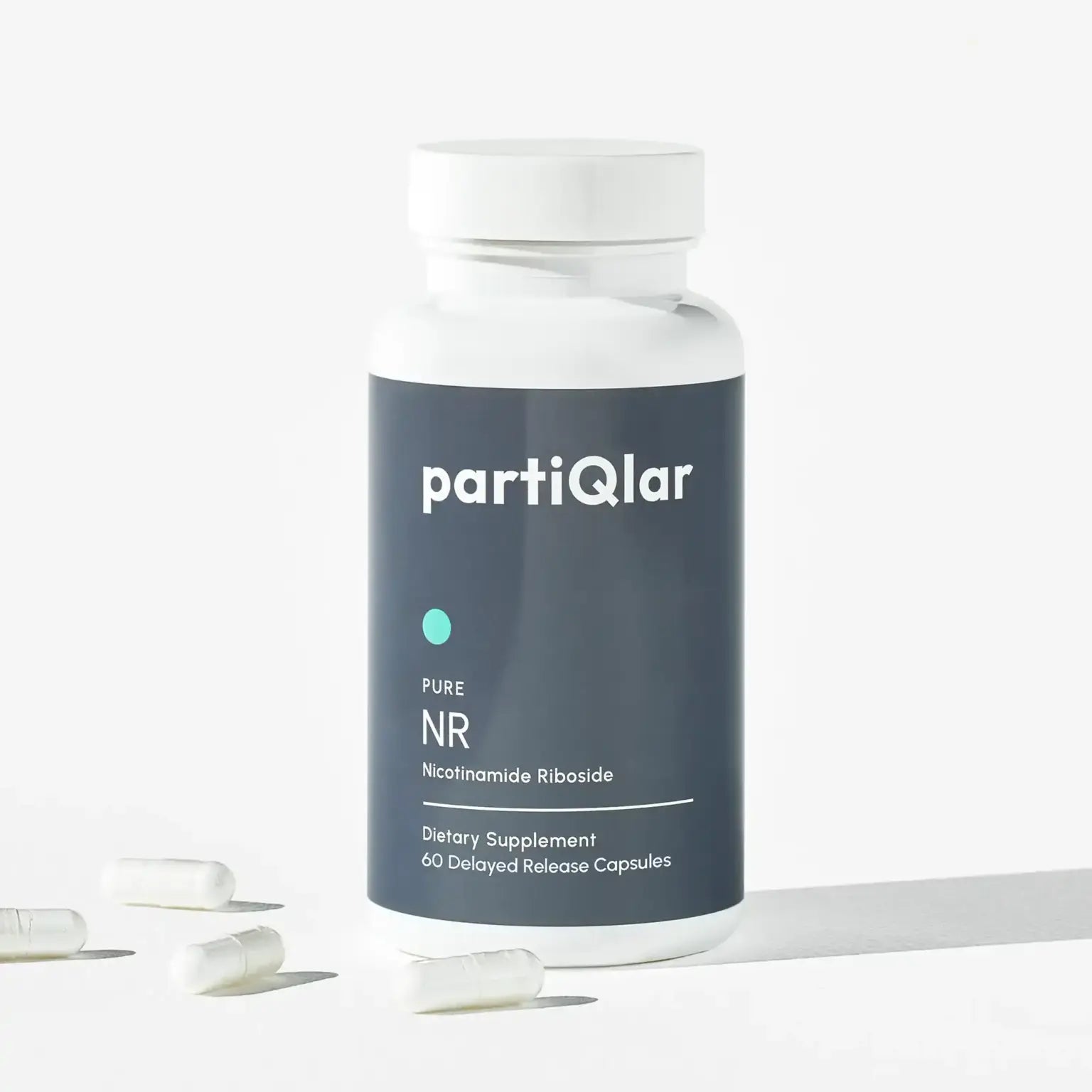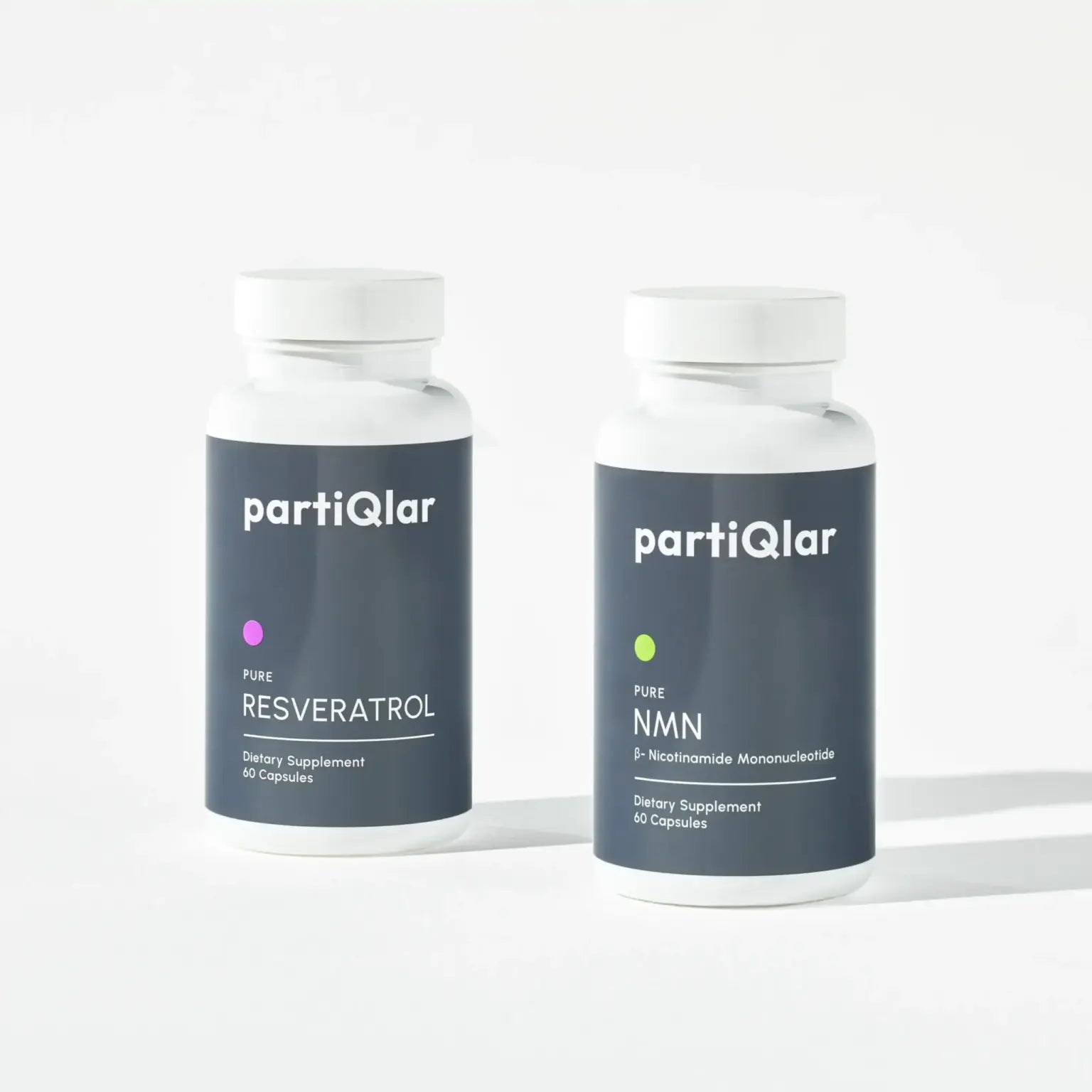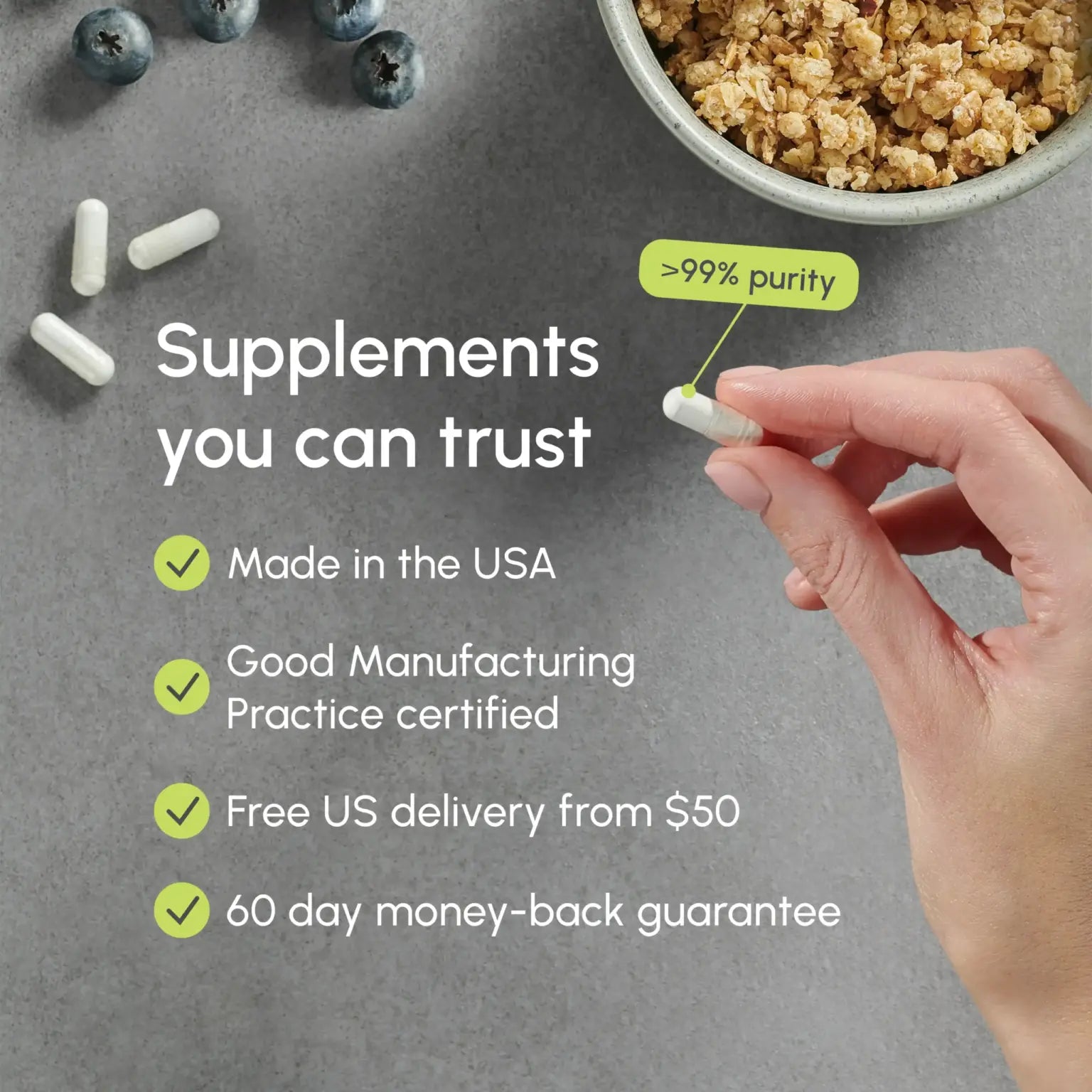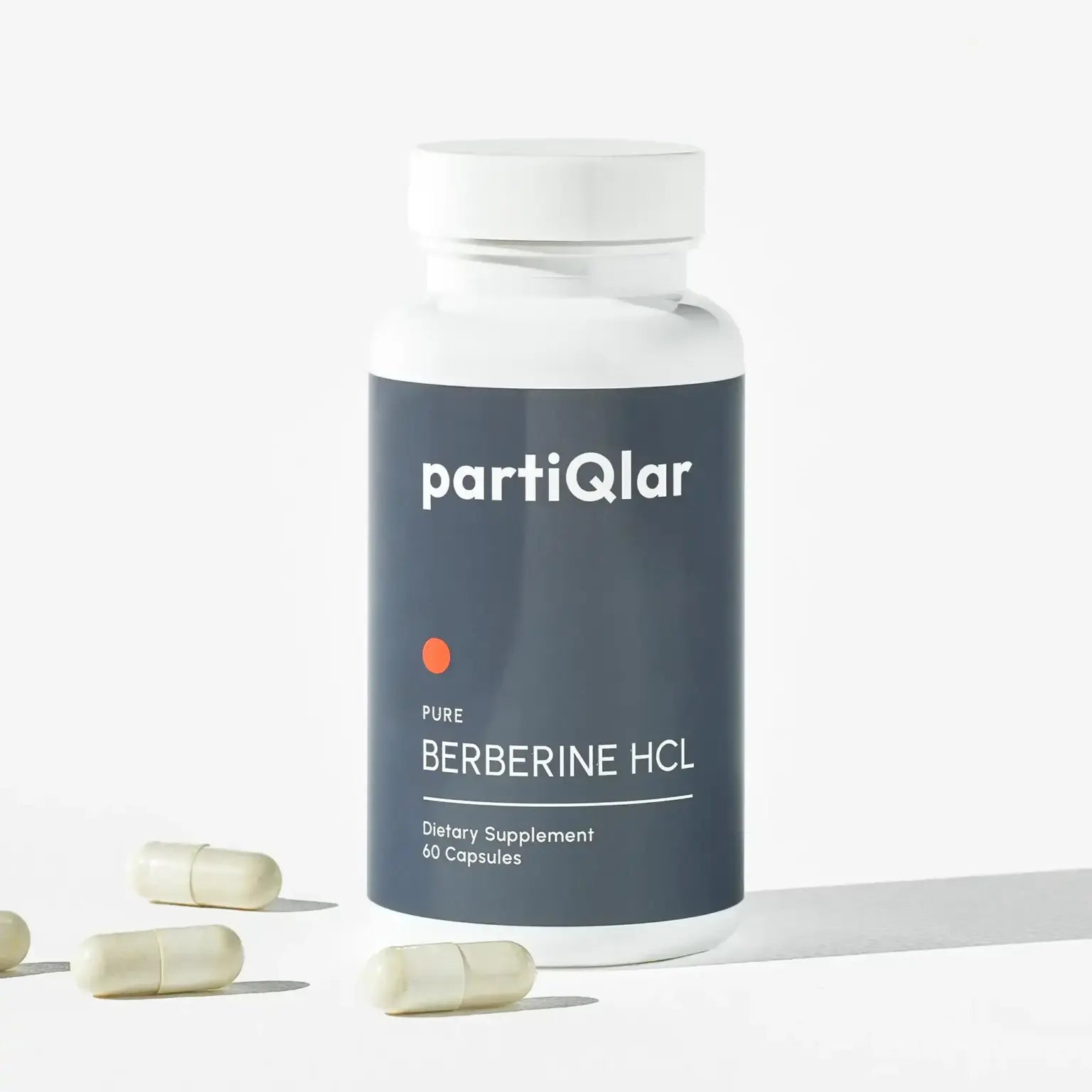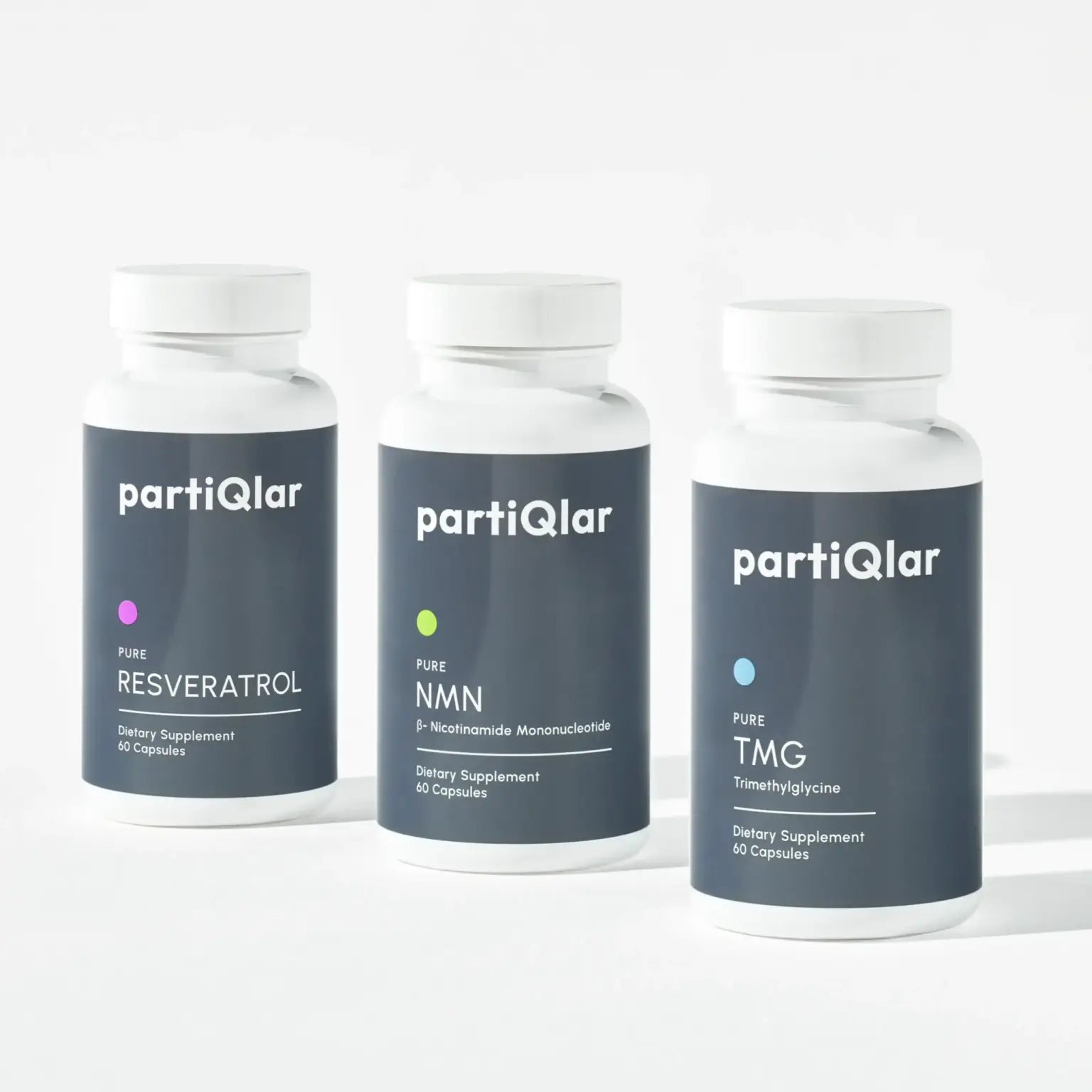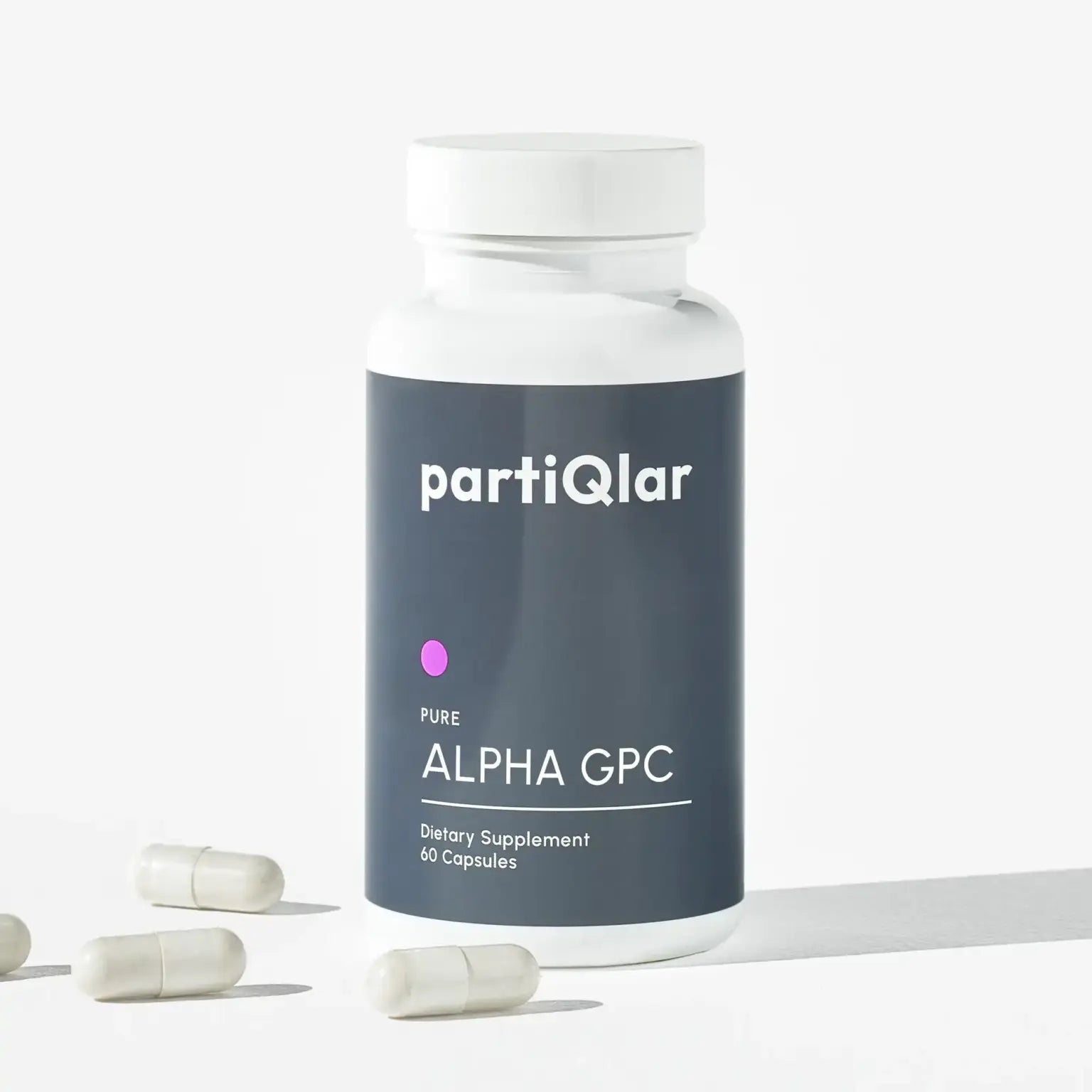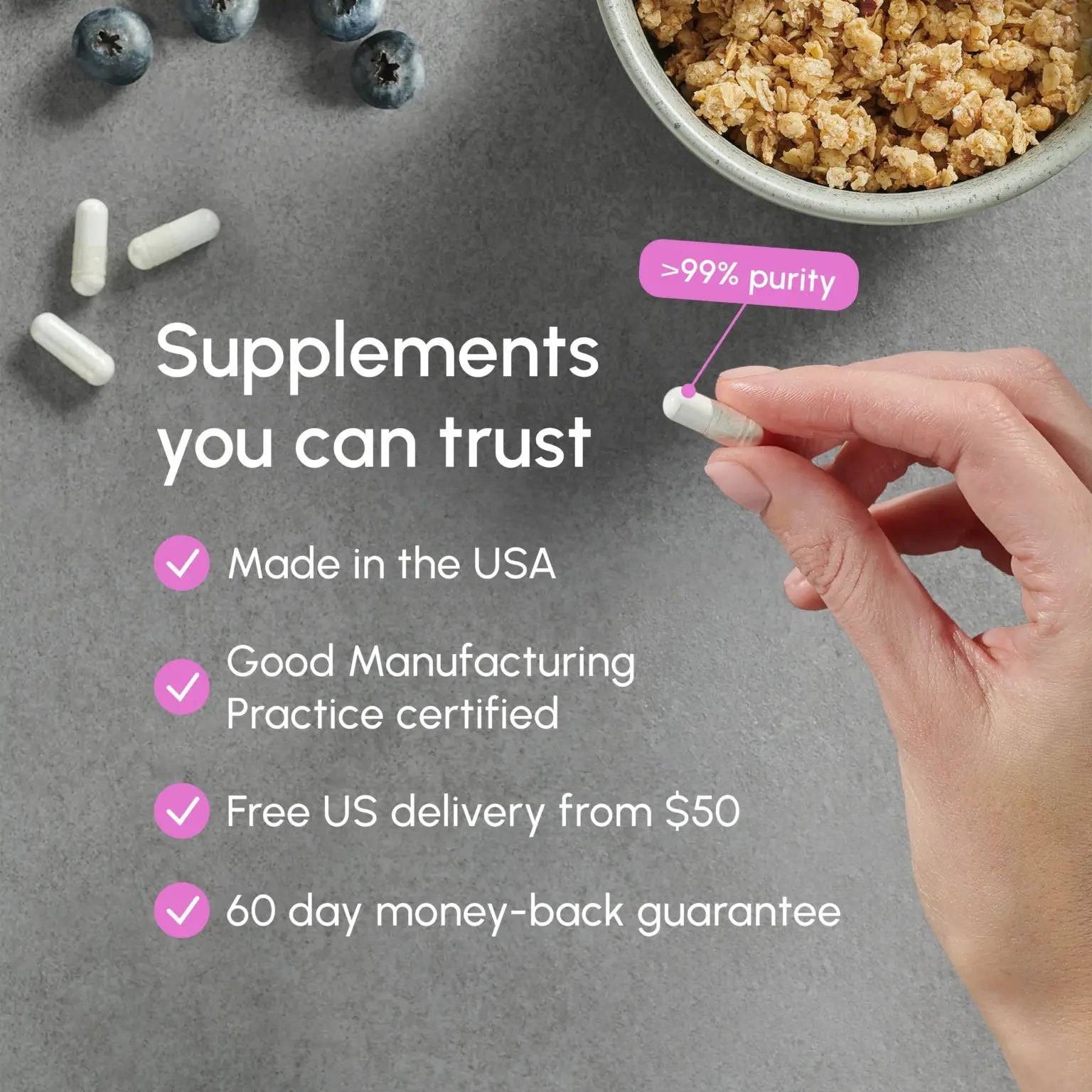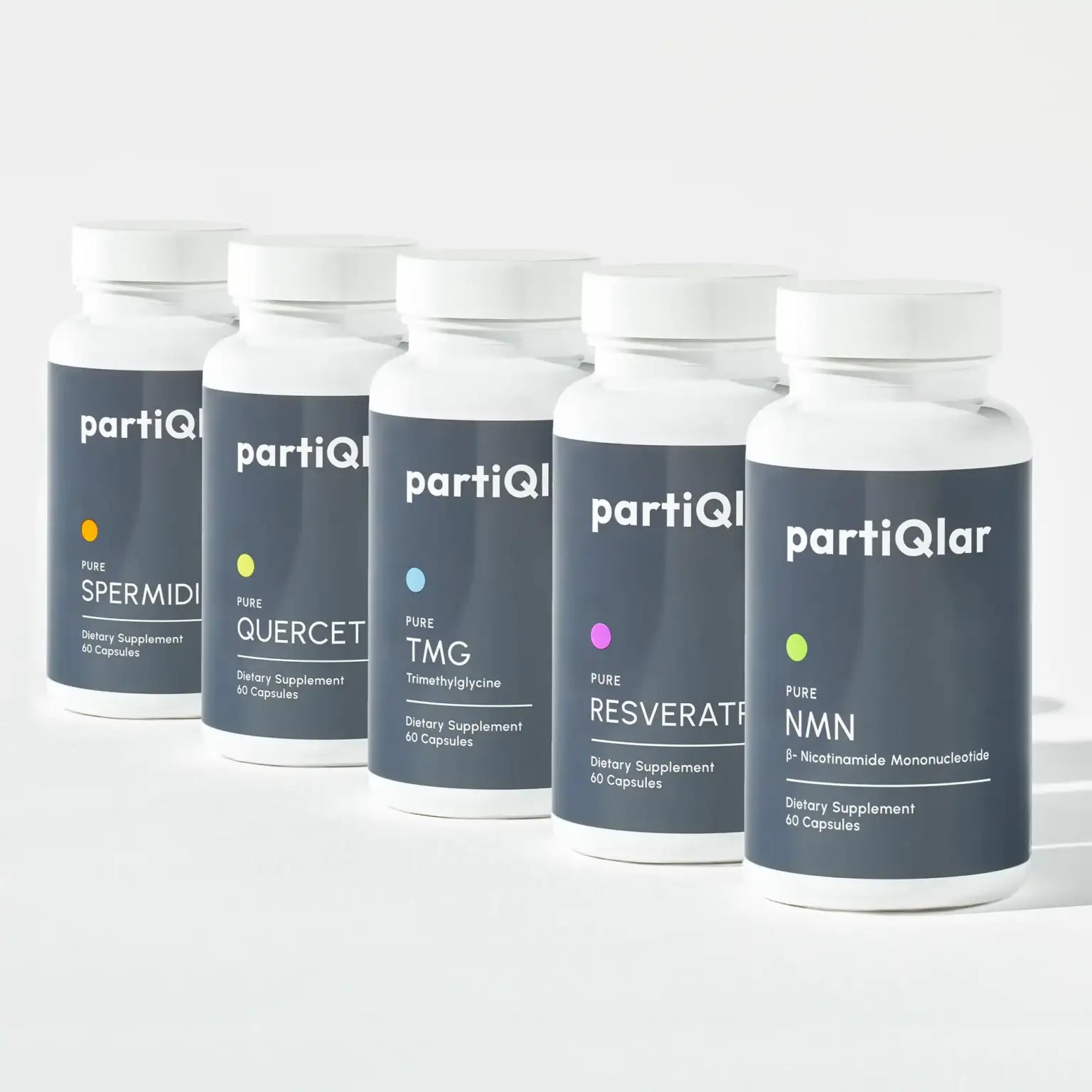
What is The Best Time to Take NAD+ for Maximum Benefits
NAD+ can often be at the epicenter of any discussion about longevity. Chances are that you’ve heard of this molecule before. And you likely heard that NAD+ (nicotinamide adenine dinucleotide) is found in every living cell, playing a vital role in converting food into cellular energy (1). This, in turn, makes us feel more energized.
But NAD+ levels drop with age (2). And that’s where NAD+ supplementation comes in – to potentially cushion the blow from the aging process and promote longevity. But don’t rush to consume NAD+ sporadically, because it’s not effective to take it when you feel like it. On the contrary – proper timing will maximize the impact of your dose.

Why Timing Matters in NAD+ Supplementation
If you want to support your cellular health, your strategy must revolve not just around the dosage, but also around timing. That is crucial when you supplement NAD+, as benefits may vary depending on when you take it.
The best time to take NAD+ is aligning your NAD+ intake with your circadian rhythm (3). For most people, that usually means taking NAD+ in the morning. As you’re starting a new day, your body is naturally ramping up energy and repair processes that depend on NAD+ (4). It’s also when your cells are most active.
If you’re a night shift worker, perhaps your circadian rhythm is different, so the general rule of thumb is to take NAD+ boosters after you wake up (30 minutes to 1 hour after leaving your bed).
Making just this one tiny adjustment is crucial, and may result in enhanced energy output, improved focus, and better metabolic support.
Benefits of Morning Supplementation
NAD+ supplementation in your morning routine is not just about convenience, it’s also about strategy. This time of day aligns with your body’s natural biological rhythm (5), which gives your supplement the best chance to actually maximize the impact of your supplement. Therefore, morning supplementation brings multiple benefits.
1. Aligns with Natural Energy Peaks
The time you usually wake up is not accidental. Your body knows what time it is and ramps up energy output (6). That immediately drives up the demand for NAD+, as your body is using it the most. Fueling these early-day demands will perfectly sync with your cells’ natural rhythm and give them what they need, right when they need it.
2. Enhances Focus and Productivity
NAD+ plays a critical role in cellular energy levels and brain function (7), both of which are the foundation to mental clarity. Taking NAD+ supplements in the morning is the smart option, because you’re most likely to need sharp thinking, creative problem-solving, and sustained focus during the first half of the day.
3. Supports Metabolic Processes
Your metabolism hates spontaneity. It follows a certain pattern every day as well, and usually tends to be more active after you wake up and eat your first meals. Taking NAD+ supplements in the morning may provide better metabolism support, including blood sugar regulation and fat burning (8).
Since metabolism decreases with age, and correlates with NAD+ levels (9), supplementing it in the morning becomes even more crucial.
Considerations for Evening Supplementation
Morning is usually the best time to take NAD+ boosters (10). However, some people consider taking them in the evening, especially if their circadian rhythm is atypical (take night shift workers, for example) or if they’re aiming to support cellular repair during sleep (11). Your body does a lot of behind-the-scenes recovery work at night, including DNA repair and detoxification (12), both of which rely on healthy NAD+ levels.
That’s why some people choose to supplement before bed.
However, there are some drawbacks to this strategy. NAD+ is closely tied to energy production, which could counteract with sleep. While there are no studies on this, people who struggle with sleep should perhaps avoid the evening strategy.
The only person who can solve the morning vs. evening debate is you. Understand your own body, adapt the supplement to your life circumstances (especially circadian rhythm), and you’ll find what works best for your biology.
Here’s a comparison table to determine what is the best time to take NAD+ boosters for you.
|
Timing |
Pros |
Cons |
|
Morning |
Aligns with the circadian rhythm for most people. May support metabolism & focus. Ramps up consistent energy for the whole day. |
May wear off by the evening if you’re very active. Might not support the background processes during sleep. |
|
Evening |
Great for night-owls, and those who go to sleep late. May support recovery and cellular health during sleep, when it’s already ramping up. |
Might affect sleep quality for more stimulant-sensitive people. Could conflict with an early-morning circadian rhythm, contributing to a worse sleep quality. |
NAD+ Before or After Workout
Timing your NAD+ supplements around your workouts might give you an extra edge through improving energy, metabolism, and recovery (13). The real question is – before or after?
NAD+ Before Workouts to Improve Energy & Endurance
If you’re looking to supercharge your workouts with that extra energy to sustain higher intensity, take your NAD+ supplement 30-60 minutes before the workout. That may support your body’s natural energy production, which in turn could make you more capable during the workout (14).
Pre-workout supplementation is especially helpful for cardio-focused workouts, where sustained energy and endurance matter most (15). It may give you that extra energy to hit a new distance or time goal.
Bonus tip: take NAD+ before a cardio session in the morning or early afternoon! Your metabolism is more active in the morning, and a boost from NAD+ will give you even more energy.
NAD+ After Workouts for Better Recovery & Repair
Your body shifts gears post-excercise, focusing less on performance and more on recovery, muscle repair, and inflammation control (16). Since NAD+ supports cellular repair (17), taking your supplement after a workout may speed up muscle regeneration and reduce oxidative stress from intense training (18).
This is especially useful if you’re of a more mature age, are training hard, or dealing with slow recovery. Some users even like to pair NAD+ supplementation with protein or other recovery nutrients for an enhanced effect.
Bonus tip: this strategy is more suited for those, who do resistance and strength training to build muscle. Muscle grows not during the workout, but during recovery (19), and the NAD+ molecule may enhance recovery even more.
NAD+ with Intermittent Fasting
Potential Synergistic Effects
Fasting activates autophagy, your body’s natural clean-up and repair process (23). NAD+ supports this by fueling DNA repair and mitochondrial function (24). Supplementing NAD+ during a fast may amplify these effects, helping your body recycle cells and produce cleaner energy.
Since fasting shifts your body toward fat-burning, and NAD+ is key in metabolic pathways that convert fat to fuel, taking it during a fasted state may enhance metabolic efficiency and energy stability (25).
Best Practices for Timing During Fasting Windows
For most, the best time to take NAD+ while fasting is 30-60 minutes after waking up, with water only. This timing aligns with your body’s natural rhythm and fasting-induced metabolic flexibility.
Avoid pairing NAD+ with food or high-calorie drinks, as insulin spikes may blunt the benefits of both fasting and supplementation.
Bonus tip: If tolerated, black coffee or green tea can complement NAD+ without breaking your fast.
Consistency and Dosage
Some could argue that consistency is even more important than timing when taking NAD+ supplements. Regular intake is what helps maintain stable NAD+ levels (26), which support cellular repair, metabolism, and energy production over time. Sporadic use likely won’t deliver the same benefits.
When it comes to dosage, it usually depends on the form of NR supplementation:
- For NR: studies used a range of 100-1000 mg/day. A safe and effective starting point is 350 mg, yet most people go from 500 mg and increase the dose to 1000 mg if they deem necessary (27).
- For NMN: studies have administered doses from 250 to 900+ mg/day (28). However, many users have found a 500 mg dose to be the most practical starting point.
As with any supplement, it’s smart to seek professional guidance before use, especially if you’re managing health conditions or combining other supplements.
Frequently Asked Questions
Can you take NAD+ everyday?
Yes, you can, and you should take NAD+ every day once you have started. This is especially crucial to maintain healthy aging. Regular supplementation helps maintain stable NAD+ levels, which supports energy, metabolism. Just be sure to follow dosage guidelines and speak with a healthcare provider if you have any medical conditions or take other supplements.
Can taking NAD+ at night affect sleep?
It might. NAD+ is closely linked to energy production and metabolic activity, so taking it too late in the day could cause restlessness or make it harder to fall asleep, especially if you’re sensitive to stimulants. While some people tolerate evening doses just fine, most find it more effective to take NAD+ in the morning when the body is naturally ramping up energy.
What supplements should not be taken with NAD+?
Most supplements are safe to take with NAD+, but some may interfere with its effects. High doses of niacin or vitamin C can compete with NAD+ pathways, and taking it with heavy meals or calorie-dense supplements may reduce its impact, especially during fasting. To be safe, take NAD+ on an empty stomach and space out other supplements when possible.
What is the most effective way to take NAD+?
The best time to take NAD+ is on an empty stomach, ideally in the morning. This timing aligns with your body’s natural energy cycle and may improve absorption. Capsules or sublingual (under-the-tongue) forms are popular: both can work well, depending on the product quality. For best results, take it consistently and follow the dosage instructions on the label.
Can NAD+ affect immune function?
Yes, NAD+ can affect immune function. It supports the activity of immune cells and helps regulate inflammation by fueling enzymes like sirtuins and PARPs, which are involved in cellular defense and repair. As NAD+ declines with age, these processes may become less efficient. This means that maintaining healthy NAD+ levels could support a more balanced and responsive immune system.
Written By : Dr. Ethan Collins
